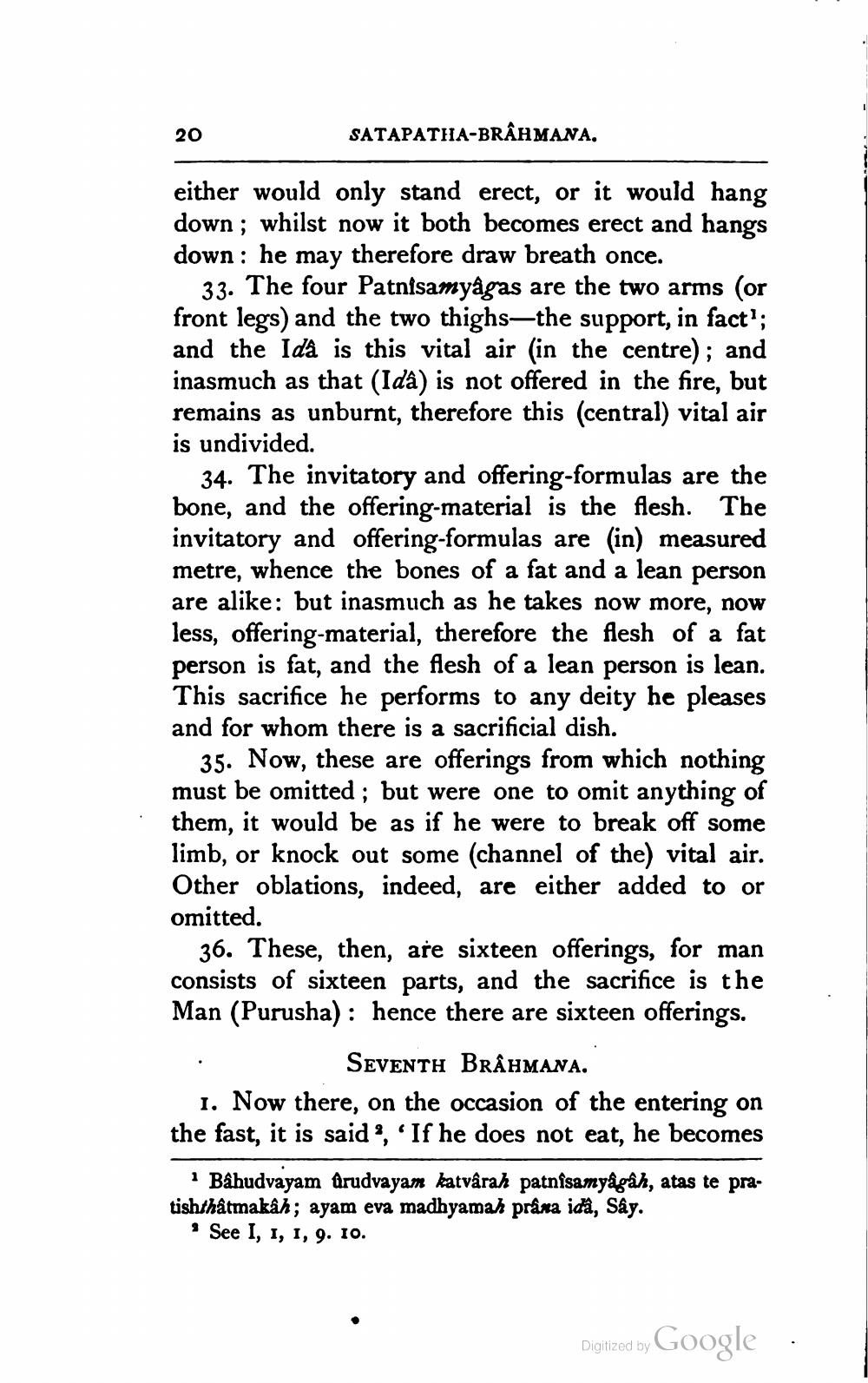________________
20
SATAPATHA-BRAHMANA.
either would only stand erect, or it would hang down; whilst now it both becomes erect and hangs down: he may therefore draw breath once.
33. The four Patnisamyâgas are the two arms (or front legs) and the two thighs—the support, in fact"; and the Idà is this vital air (in the centre); and inasmuch as that (Idâ) is not offered in the fire, but remains as unburnt, therefore this (central) vital air is undivided.
34. The invitatory and offering-formulas are the bone, and the offering-material is the flesh. The invitatory and offering-formulas are (in) measured metre, whence the bones of a fat and a lean person are alike: but inasmuch as he takes now more, now less, offering-material, therefore the flesh of a fat person is fat, and the flesh of a lean person is lean. This sacrifice he performs to any deity he pleases and for whom there is a sacrificial dish.
35. Now, these are offerings from which nothing must be omitted ; but were one to omit anything of them, it would be as if he were to break off some limb, or knock out some (channel of the) vital air. Other oblations, indeed, are either added to or omitted.
36. These, then, are sixteen offerings, for man consists of sixteen parts, and the sacrifice is the Man (Purusha): hence there are sixteen offerings.
SEVENTH BRÂHMANA. 1. Now there, on the occasion of the entering on the fast, it is said, 'If he does not eat, he becomes
Båhudvayam drudvayam katvarah patnisamyâgâh, atas te pratishthâtmakâh; ayam eva madhyamal prâna idă, Sây.
· See I, 1, 1, 9. 10.
Digitized by
Digitized by Google.




